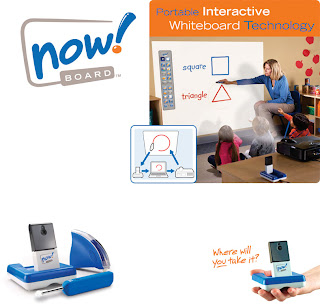Promethean World
Sensory engagement in the teaching environment
Learning difficulties run in the family, so when my sisters and I were just children my mum made sure we were tested by the Dyslexia Institute. The tests quickly showed that my two sisters had severe dyslexia (a learning difficulty that creates difficulty with reading comprehension, spelling and short-term memory) and I was referred for further testing, eventually finding out I had a mild form of dyspraxia (a neurological disorder that can cause issues with co-ordination and motor functions).
My mum has suffered with her dyslexia and dyscalculia (difficulty with mathematical equations) all throughout her life and when she was in school she was just told she was slow, so she did everything she could to ensure we were given the help we needed in school.
The help was pretty poor (learning and motor difficulties were still looked on with a bit of a cynical eye back then), but I like to think we did alright. Luckily, the issue of dyslexia is properly addressed in schools nowadays – my nephew also has it and he’s being given the help he needs to receive as good an education as all of the other children in his class.
In terms of teaching dyslexic children, the main issue is that a dyslexic’s auditory and visual senses may be impaired, which means they’ll have trouble reading information from a board and listening to what the teacher says. I can’t count the number of times my sisters came home from school in tears because they just couldn’t understand what was going on in class.
By using a multi-sensory teaching method in schools, teachers can now tackle this issue. Multi-sensory learning is good for non-dyslexics as well, as it can help children to utilise all of their senses. However, it’s especially effective with dyslexics that have issues with visual tracking and auditory short-term memory.
The main methods of multi-sensory teaching are broken down into Visual, Auditory and Kinaesthetic, or VAK. Many studies have shown that combining these three senses make children much more likely to take information in. Utilising this triple-pronged approach to teaching ensures that every child in the class is able to understand what’s going on.
Much like any other child, children with learning difficulties often have a need to feel engaged with, otherwise the information won’t be absorbed properly. If a child doesn’t find the topic interesting, they’ll generally stop listening. Using tactile, auditory and visual information in class will make sure a child’s concentration is drawn back to the teacher and the subject matter again and again, and it also makes learning fun for everyone in the class.
.jpg)






















